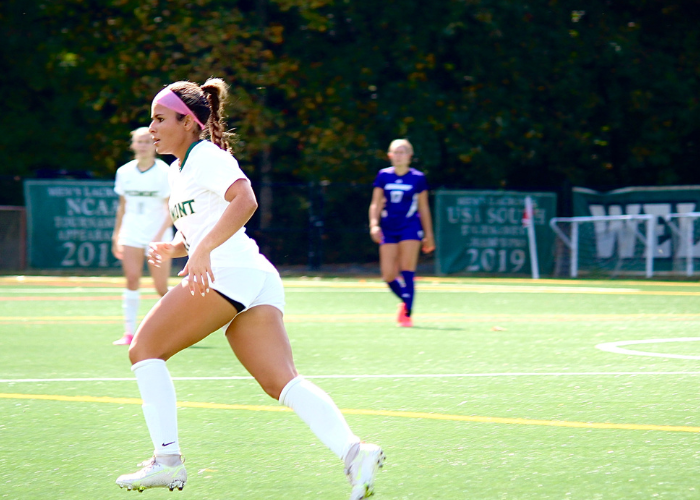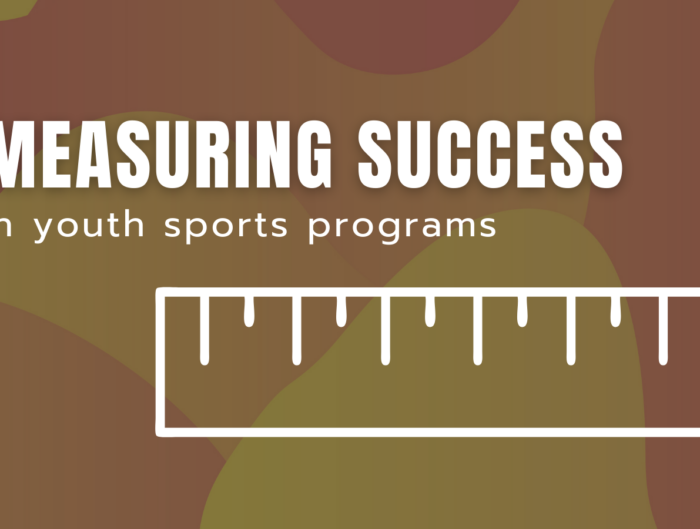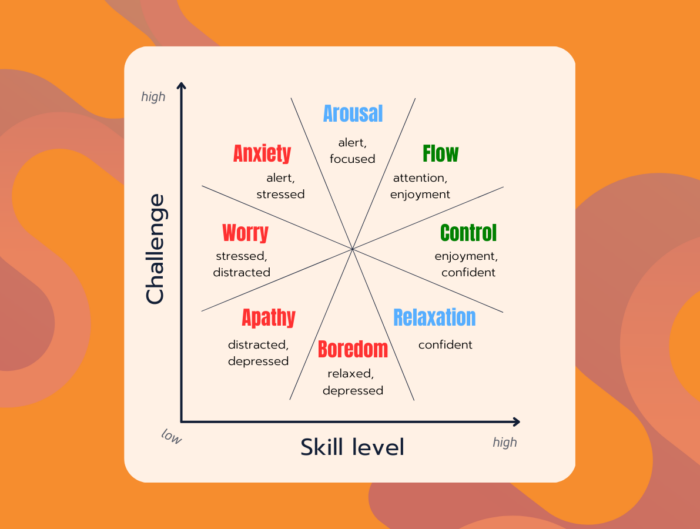If you’re a parent or coach of a budding athlete, you might find yourself grappling with a significant decision: should you encourage them to engage in multiple sports or focus on one particular sport from an early age? This dilemma has sparked ongoing debates among sports experts, with compelling arguments arising from both camps. To shed light on this topic, we reached out to a panel of experienced Beyond Pulse coaches and gathered their invaluable coaching perspectives. Let’s explore their insights and gain a deeper understanding of this age-old question.
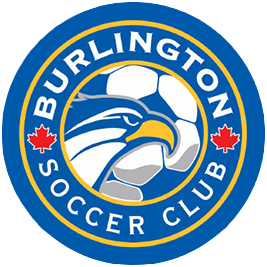
Jamie Shannon, Burlington Soccer Club
Technical Coordinator and Coach OPDL U13 & U17 Boys
An argument can always be made for both but my thoughts on this topic are that the benefits of mutlisport participation early on in a child’s development outweigh that of specialization. There is always an argument against specialization of overtraining/burnout/overuse injuries etc. But I think that from a social and development side being able to play various sports other than the sport that may be a child’s “main sport” allows them to develop stronger social skills and build relationships as they have the opportunity to play with a larger group of children or friends.
As a father and a coach, I believe that it is important for our kids early development to face adversity. They need to be pushed out of their comfort zone and put into situations where they will be challenged and feel uncomfortable. By not necessarily always being the “strongest player”, they learn to adapt to different roles as part of a team. They learn to push themselves harder or to change the way they play to compete with kids that may specialize in that given sport. By doing these things they develop skills, confidence and physical attributes that will make them a more well rounded athlete, teammate and person later in life.
Specialization often comes with a significant time commitment causing children to miss out on opportunities to spend time with family and friends/attend events etc. that may create resentment later in their playing careers. There is also the risk of some degree of social isolation as kids are basically laser focussed on their sport and will inevitably miss out on opportunities to spend time with friends and participate in social events that help create strong bonds and childhood friendships that are essential to healthy development. I can speak personally to this as I certainly sacrificed some of these opportunities when I was younger.

Joe Bolella, Manhattan Soccer Club
Boys Coach and College of Staton Island Men’s Soccer Player
Personally, I was a multi-sport athlete growing up and saw much benefit from doing so. While this kept me active and improved my fitness tremendously in all regards, I was also able to apply specialized skills and habits to other sports that I wouldn’t have learned otherwise.
For example, fluid movement and enhanced awareness that is required of a central midfield soccer player can help facilitate vision and passing capability that is needed to be a good point guard in a basketball team. There is plenty of value in single sport specialization, maximizing and focusing an athlete’s ability and efforts, but this also puts enhanced pressure for success on a kid looking to enjoy the sport first.
I think being a multi-sport athlete instills a similar level of discipline(to those specialized athletes), while developing a wider range of skills and athlete IQ. Off the field, the athlete gets to meet more friends, gain more experiences, and pursue what they love when it is time to commit to a specific sport.

Lindsay Schartner, Mendham High School
Head Varsity Boys Soccer Coach
When confronted with an issue that is as debated as this one, I tend to analyze it from multiple perspectives and see if, based on the pros/cons for both sides, there are solutions that can best tackle the issue.
Sports Specialization gets a lot of attention and backlash, but there are definitely upsides to specializing at a younger age in a single sport. Specialization, of course, has the benefit of facilitating an athlete to become an elite-level player because of the focus and time they give to that sport. Additionally, some children are truly passionate about a single sport and they are excited and want to dedicate their energies to it. If we look at early specialization, particularly, in regards to the youth soccer landscape we can see wider benefits as well. Early specialization in soccer usually has an athlete, at a minimum per week, training 3 times and playing in 1 game and this is near year round. In order to accommodate this training load of specialized athletes, the demand of time on a coach lends itself to the need for professionals to oversee these trainings and games. Professional coaches which work in the industry full time and can dedicate their professional development to improving their practice, helps the overall growth and development of the sport. US soccer is often cited as lagging behind our European counterparts where many of their players specialize in soccer at an early age. By having specialization at an early age, there is a greater focus on player development surrounded by a large pool of professional coaches and administrators that are dedicated to growing their professional knowledge and the sport in this country.
On the other hand, it is widely researched and recognized that specializing in a sport at a young age can lead to overuse injuries and burnout. These are important concerns that could prevent an athlete from reaching their full potential. Additionally, kids truly enjoy multiple sports and by having them specialize at an early age they feel they are missing out and can become resentful to the sport they are in. In addition, when athletes play multiple sports, it helps them with their overall development. This is why in physical education classes, curriculum includes the instruction of a multitude of sports in order to improve overall tactical game awareness, skill acquisition, and motor control of their students. (Breed, 2021) When soccer players play basketball, there are transferable skills that improve their understanding of technical or tactical aspects of their game, for instance, the transferable skill of a defensive stance.
There are ways to allow players to develop into elite single sport athletes, while avoiding the pitfalls attributed to early sport specialization. First, as parents, we often begin by first putting our children in the sports we are most familiar with as they are the ones we enjoyed or played as youth. Therefore, at the earliest ages we need to expose them to multiple sports and then if our child does specialize, allow it to be as a result of their choice, and not as a result of being influenced by a parent or sibling’s path. Waiting until a child is old enough to be physically and mentally mature enough to know what sport their physical attributes are best suited for and to be self-aware enough to know their own interests is ideal. For players specializing at a young age, it is important to bring elements of cross training into their training regiment so as to best avoid overuse injuries, for soccer players that can include resistance training, swimming, or cycling. Finally, to avoid player burnout, as coaches we need to incorporate opportunities for free play where players, without the stress and anxiety that comes with the pressure to perform, are encouraged to experiment, problem solve on their own, and just enjoy the beauty of the game.
Breed, R., & Spittle, M. (2021). Developing game sense in physical education and sport. Human Kinetics.
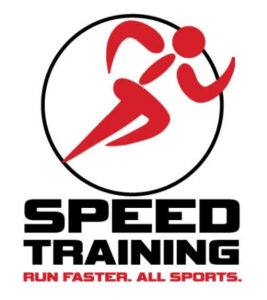
Richard Bucciarelli, Speed Training and Soccer Fitness
President. Speed Training, Soccer Fitness
PhD Candidate, R.Kin., CSCS, CSEP-CEP, USSF “A” Licence
Based on research, late specialization is the best option for youth athletes. Athletes get less injuries, a more well-rounded motor skills and athletic development, and healthier self-esteem and social relationships.
So, when should a young athlete specialize in his or her sport? In a recent article published in the Journal of Scientific Research, a three-stage model of athletic sport development was proposed, to help guide parents, athletes and coaches in specialization.
The first stage, the Sampling Years, is the period before age 10 to 13. In these years, the focus should be on fun, physical movement, sportsmanship, and diversity of experience. In other words – Kids should “sample”, or, play multiple sports and see which ones they like best.
The second stage of athletic development is the Specializing Years, that correspond to about the ages of 12-16 years. In this period, children can handle increased pressure, they can be more focused in training, and at some point during the specializing stage – as the name implies – one primary sport can be identified to SPECIALIAZE in.
The final stage of athletic development is referred to as the Investment Years. At this stage, which begins at age 15 or 16, athletes are physically and psychologically developed enough to really specialize in just one sport. Of course, along with this specialization comes the opportunity – if they are talented and determined enough – to earn a spot in the levels of competition, including professional and national teams. Many other studies, as well as articles written by top professional sports scientists and strength and conditioning coaches, have also recommended similar models to the 3-Stage model discussed here.
Ultimately, athletes, parents, and coaches should keep one thing in mind as they progress through the Sampling, Specializing, and Investment years: there is no rush in choosing one sport to focus on. The more sports you play – and the more often you play them – the better off you will be.
(Paraphrased from Richard’s Article: The Great Debate: Early Vs Late Specialization In Sports)

 FRA
FRA

